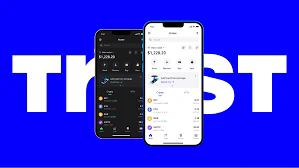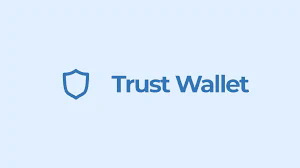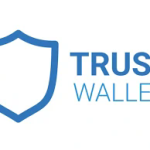# Trust Wallet Review: An In-Depth Analysis
Trust Wallet has emerged as a popular cryptocurrency wallet since its inception. With a robust feature set and user-friendly interface, it caters to both novices and experienced users in the cryptocurrency space. This article aims to provide a comprehensive review of Trust Wallet, covering its features, security, usability, supported cryptocurrencies, advanced functionalities, and more.
## What is Trust Wallet?
Trust Wallet is a decentralized cryptocurrency wallet founded in 2017 and acquired by Binance in 2018. It allows users to store, manage, and trade a diverse array of cryptocurrencies and tokens in one secure environment. Unlike custodial wallets, Trust Wallet enables users to retain control over their private keys, ensuring greater security and autonomy over their funds.
## Key Features of Trust Wallet
### 1. Multi-Currency Support
One of the standout features of Trust Wallet is its extensive support for multiple cryptocurrencies. Users can store Bitcoin, Ethereum, and thousands of ERC-20 tokens, as well as BEP-2 and BEP-20 tokens. This versatility makes Trust Wallet a suitable choice for users involved in various blockchain ecosystems.
### 2. Decentralized Exchange Access

Trust Wallet is integrated with decentralized exchanges (DEXs) like Uniswap and PancakeSwap, allowing users to trade cryptocurrencies directly from their wallets without relying on a centralized exchange. This access facilitates quick trades and gives users greater control over their transactions.
### 3. User-Friendly Interface
User experience is a critical factor for any wallet, and Trust Wallet excels in this regard. The intuitive interface makes it easy for beginners to navigate, while advanced users can easily access more complex functionalities. Key actions, such as sending and receiving tokens, are straightforward and quick, ensuring that all users can manage their assets effectively.
### 4. Built-in Web3 Browser
Trust Wallet includes a built-in Web3 browser that enables users to interact with decentralized applications (dApps). This feature not only allows for seamless engagement with various blockchain applications like games and marketplaces but also underscores Trust Wallet’s commitment to a decentralized future.
## Security Features
### 1. Private Key Management
Trust Wallet puts an emphasis on security by allowing users to manage their private keys. Users retain full control over their keys, stored locally on their devices, which diminishes the risks associated with third-party custodial wallets.
### 2. Biometric Authentication
Security is further enhanced through biometric authentication options, such as fingerprint scanning and facial recognition. These features add another layer of protection to user accounts and prevent unauthorized access.
### 3. Regular Security Audits
Trust Wallet undergoes regular security audits and updates to patch vulnerabilities and enhance its security protocols. While no system is entirely immune to risks, the ongoing diligence helps to maintain a secure environment for users.
## Usability: Beginner-Friendly Yet Versatile
### 1. Simple Setup Process
Setting up Trust Wallet is straightforward and intuitive. Users can easily download the wallet on iOS or Android, create a new wallet, and back up their recovery phrase in just a few minutes. This simplicity appeals to newcomers who may feel intimidated by complex setups in traditional wallets.
### 2. Multi-Language Support
To cater to a global audience, Trust Wallet offers multi-language support. This functionality ensures that users from different regions can navigate the app in their preferred language, enhancing user experience and accessibility.
## Supported Cryptocurrencies
### 1. Major Cryptocurrencies
Trust Wallet supports all major cryptocurrencies, including Bitcoin (BTC), Ethereum (ETH), and Litecoin (LTC). This extensive compatibility makes it an appealing choice for users who hold various crypto assets.
### 2. Tokens and Altcoins
In addition to major coins, Trust Wallet supports a substantial range of tokens across different blockchain ecosystems. Users can store thousands of ERC-20, BEP-2, and BEP-20 tokens, further solidifying Trust Wallet’s position as a comprehensive multi-currency wallet.
## Advanced Functionalities
### 1. Staking Features
Trust Wallet supports staking for several cryptocurrencies, allowing users to earn passive income by participating in the blockchain network’s consensus mechanism. By staking, users can contribute to network security while receiving rewards in the form of additional tokens.
### 2. NFT Support
Trust Wallet has embraced the burgeoning NFT (non-fungible token) market by allowing users to store and manage their NFTs within the wallet. This feature appeals to collectors and investors interested in digital art and unique digital assets.
### 3. Integration with WalletConnect
Trust Wallet’s compatibility with WalletConnect enables users to interact with a wide range of dApps while ensuring the safety of their private keys. This feature empowers users to connect their wallets to Web3 applications seamlessly, enhancing the overall functionality of Trust Wallet.
## The Role of Trust Wallet in the Cryptocurrency Ecosystem
### 1. Empowering Decentralization
Trust Wallet stands as a refined example of the decentralized ethos inherent in the cryptocurrency community. By giving users complete control over their funds and private keys, Trust Wallet promotes financial sovereignty and reduces reliance on central authorities.
### 2. Bridging Web2 and Web3
As the crypto landscape evolves, Trust Wallet serves as a bridge between traditional Web2 applications and the emerging Web3 protocols. By offering a simple wallet solution intertwined with advanced functionalities, Trust Wallet plays a key role in preparing users for a more decentralized future.
## Community and Support
### 1. Strong Developer Community
Trust Wallet has a vibrant community of developers and contributors who continuously work on enhancements and updates. Regular announcements and community engagement facilitate knowledge sharing and user feedback, fostering an engaged and supportive ecosystem.
### 2. Customer Support Channels
Users can access a variety of customer support channels, including FAQs, community forums, and direct support options. This multi-faceted approach helps users troubleshoot issues and enhances their overall experience with the wallet.
## Limitations and Considerations
### 1. Self-Custody Risks
While Trust Wallet’s self-custody model offers advantages, it also comes with risks. Users are responsible for safeguarding their recovery phrases and private keys, and losing access can result in irreversible loss of funds. Users must understand the importance of security best practices.
### 2. Limited Customer Support
Although Trust Wallet provides support options, the response times can be slow during peak periods, which may frustrate users facing critical issues. This limitation contrasts with centralized exchanges that often have dedicated customer support teams.
## Conclusion

Trust Wallet stands as a powerful tool in the crypto world, offering users a secure, versatile, and user-friendly solution for managing digital assets. Its strong focus on decentralization, extensive cryptocurrency support, and innovative features make it an excellent choice for both newcomers and seasoned traders. As the cryptocurrency landscape continues to evolve, Trust Wallet is poised to play a pivotal role in shaping the future of decentralized finance.
In summary, whether you are looking to store, trade, stake, or collect NFTs, Trust Wallet provides a robust platform with the necessary tools and security to help you navigate the thrilling world of cryptocurrency effectively. As always, users are encouraged to take the necessary precautions and continually stay informed about the best practices in cryptocurrency management.


